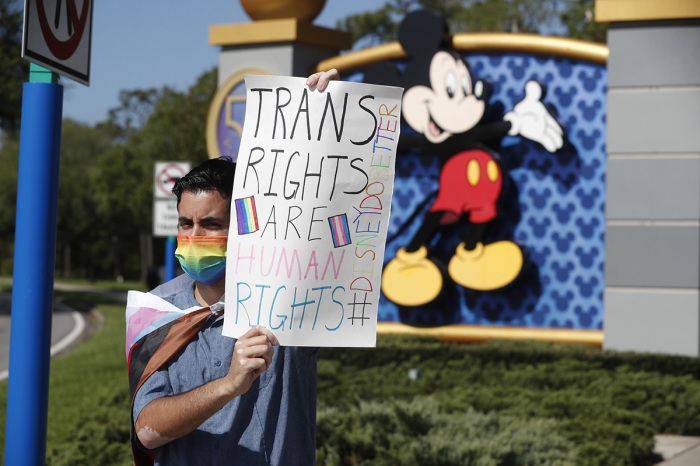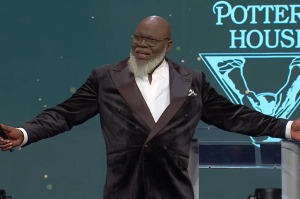Disney execs should remember that pride goeth before a fall

Disney corporation is suffering severe backlash about its decision to come out strongly against Florida's Parental Rights bill. The CEO of the company, Bob Chapek, initially decided to stay out of the public fight over the bill. He believed it was quite likely to be signed by Governor DeSantis, and that the most constructive role Disney could play would be to work with the state to ensure that the bill would not be weaponized against gay and trans youth. He also argued that public posturing by corporations does little to change minds and instead creates strife and division, and that the best thing a company can do to promote fairness is to treat its employees fairly.
But then a hyper-organized campaign run by a segment of Disney employees with media backup intimidated Chapek into going against his better judgment and coming out strongly against the bill. It appears in retrospect that Chapek was right the first time around. Public opinion is clearly in favor of the actual language of the bill, even among Democrats and Independents. Of course, rigged polls which ask people if they support the "Don't Say Gay" bill show opposition, but that's based on a false premise. Nothing in the bill outlaws the saying of the word "gay." The bill focuses specifically on K-3, and applies to classroom instruction, not to the students themselves. When the public is quoted the actual proposal verbatim, they support it.
In addition, now more mainstream Disney employees have themselves spoken to the issue. In an open letter, they are respectfully asking Disney to stay out of divisive issues like this one and to preserve Disney as a sort of neutral ground in a time of polarization. The fact that this group felt the need to issue the letter anonymously shows how much a spirit of fear has been inculcated in the minds of those who are not on board with Disney's ideological capture.
Furthermore, political backlash is growing. Disney has a special legal privilege in Florida, in that it has its own municipal government, with its own police and fire departments. This special carve-out of authority to a private corporation goes back 55 years. However, due to Disney's intrusion into the political arena and hostility to a policy which is popular with the people of Florida, the state is talking seriously about rescinding this special privilege. Disney has lobbied and contributed its way into many special deals with governments, from tax subsidies for movie shoots to highly unusual copywrite monopolies on stories from classic literature. What government gives, government can take away, and Disney has a lot that can be taken away.
Two Biblical leadership principles at least seem to be violated here. First, the principle of stewardship. "First of all it is required of stewards that one be found faithful." Disney is a steward of the assets of shareholders. It's simply not management's money. If a CEO wants to take up the political hobby of fighting for the importance of a curriculum that explains to five-year-olds that gender is a social construct, that's his business. But Disney isn't his business; it's the owners' business. If a CEO wants to go for "legacy" and accolades from the media and awards for being forward thinking, it should be his money and his name and reputation alone that are on the line. Anything else is misuse of shareholder resources.
The second Biblical leadership principle violated is the principle of counting the cost. Jesus uses the analogies of waging a war and of building a tower, arguing in both cases that if the cost of the enterprise is not fully accounted for in advance, the project is apt to fail. Disney is doing a bit of both: building a castle to tower over all other content providers, and at the same time waging a culture war that nobody drafted it into. Disney should, as Christ mentions in the analogy of counting the cost, "sue for peace" before the forces arrayed against it have gone too far to pull back. Once political momentum reaches a certain point, the historic spirit of cooperation between conservatives and business can be lost entirely.
I have spent many hours reading material pertaining to corporate governance, particularly the relationship between shareholders and boards of directors. I've read many, many proposals on proxy statements for annual meetings and spoken with investor relations officers as well as senior managers at the world's largest proxy services. Over and over again, I've seen that the device activists use to force fit political issues into business management is to recast them as "reputational risk management." But in every conversation I've had, there has been a blind spot, a gap in the peripheral vision which seems unable to see any risk whatsoever coming from the right. That's not risk management; that's risky mis-management. Disney has given itself over to a monomaniacal devotion to the "pride" agenda above the interests of more traditional groups. Perhaps they've forgotten that pride goeth before a fall.
Jerry Bowyer is financial economist, president of Bowyer Research, and author of “The Maker Versus the Takers: What Jesus Really Said About Social Justice and Economics.”





























